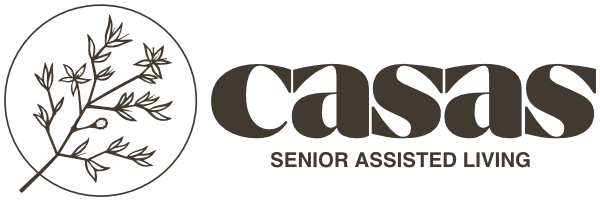Many government programs exist that are meant to help senior citizens find support and opportunities. Some pay for necessary services like medical care while others assist seniors in remaining active members of society.
Many older adults are not aware of the number of resources that are available to them. It’s not always easy to know where to start looking for information, especially for anyone who is not computer savvy. The following list highlights several government programs for seniors in Arizona.
Arizona Agency on Aging Worker Programs
Seniors who want to continue working can turn to the Arizona Agency on Aging for assistance. The Arizona Workforce Connection supports retired jobseekers. They can help seniors develop their resumés and find a job or provide career counseling. They also provide information on employee rights, laws, job training programs, and educational opportunities.
The Agency on Aging provides mature worker services through its AZ Links program, which is designed for residents who are over age 50. They connect seniors with job openings, training, and volunteer opportunities.
If you are age 55 or older, then you may be eligible to find work through the Arizona Senior Community Service Employment Program. Those who are low income can also use the federal Senior Community Service Employment Program (SCSEP), which works through American Job Centers.
Arizona Department of Economic Security Helps Seniors Live Healthier
The Arizona Department of Economic Security helps seniors live healthier and eat better. A home-delivered meal program is available that brings nutritious foods to people who need them. This ensures that seniors eat well and gives them an opportunity for socialization to help fight isolation.
A congregate meal program is also available. This serves a similar purpose but distributes meals at a specific location. It could be a senior center, nutrition site, or other group setting. Seniors can travel to the location and enjoy a meal as well as the company of others. Many congregate sites also provide transportation, social service referrals, health screenings, legal assistance, and social activities.
Along with meals, the Arizona Department of Economic Security manages the Chronic Disease Self-Management Program (CDSMP). This includes workshops that educate seniors on health problems and how to take care of them effectively. The trained people who lead these sessions also live with chronic conditions.
Workshops are approximately 2.5 hours per week over six weeks. Topics covered include managing symptoms, problem solving, nutrition, understanding medications, goal setting, improving fitness, treatment-related decision-making, and coping with difficult emotions.
Anyone with a chronic condition is welcome to enroll, including those with multiple sclerosis, asthma, heart disease, arthritis, and diabetes. Caregivers and family members of people with chronic conditions can also participate.
Federal Housing Programs for Seniors
The federal government runs its Section 8 housing program that includes seniors. Under section 8, low-income families, disabled people, and senior citizens receive financial assistance to pay for rent. Vouchers are used to rent private housing from landlords who participate in the program.
To qualify, you must have an annual adjusted household income that’s under 80% of the median household income for the area, which is calculated by the Department of Housing and Urban Development (HUD).
There are other limitations and alternative income limits that may also apply. Recipients are usually required to pay 30% of their monthly household income toward rent. The renter pays their required portion, and the Section 8 program pays the rest.
Seniors facing financial hardship and housing issues can try to find solutions through the Section 8 program. Just keep in mind that there is a high demand for vouchers and a long waiting list in most parts of the country. Some applicants end up waiting months or even years before receiving a voucher.
If you already have a home that needs repair, the Housing Rehabilitation Grants and Low Interest Loans program may provide another option. This program helps seniors pay for repairs that are a health or safety hazard in their homes. It can also be used to make modifications needed for seniors with mobility impairments so they don’t have to move.
These programs are paid for through HUD but are administered by the state or local government. You should contact the Arizona Agency on Aging for more information or to apply.
The Foundation for Senior Living in Arizona
The Foundation for Senior Living (FSL) was established by the Roman Catholic Diocese of Phoenix in 1974. It was a private non-profit organization that provided social services and housing to seniors and people with disabilities regardless of religion, social status, or race.
Today, seniors can turn to FSL to connect with several programs and opportunities. They have three food pantries that deliver meals to nearly 800 Arizonans daily, including senior centers.
FSL also helps connect seniors to housing opportunities like group homes, apartment rentals, adult foster care, and single-family homes for sale. Their website connects with home energy solutions and home improvement programs.
Other programs include caregiver support and health and wellness.
Active seniors can also check out volunteer opportunities to give back to the community. FSL provides individual volunteering like Friendly Caller which makes calls to vulnerable or lonely adults and Client Memory Recorder which records memories for the benefit of families. Those with career skills and training like photographers, fitness instructors, physical therapists, and podiatrists can also offer services as a volunteer.
Getting Support Through Assisted Living
Senior citizens who are struggling with daily life should consider a move into assisted living. A senior living community provides care and services in a safe, clean environment. Older adults can enjoy comfortable accommodations with three nutritious meals a day provided. Moving into a retirement community also helps prevent isolation, which can improve quality of life and longevity.
If you have questions about assisted living services or costs, let us know. Visit Casas Adobest now to learn more or to schedule a tour of our residential-style senior home.
